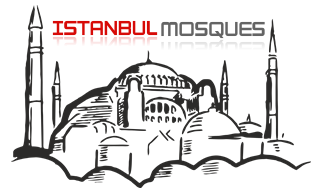
WELCOMING
THE SULTAN OF ELEVEN MONTHS
Nowadays, Ramadan is a frequently heard word. It is the
ninth month in the Muslim lunar calendar. Muslims observe this sacred month
of Ramadan to mark the time that Allah
sent an angel to Prophet Muhammad to reveal the Quran, the Islamic holy
book, for the first time in 610 AD. This
night that revelation had begun to be revealed is known as the “night of power”
or ‘Laylat Al Qadar’ in Arabic.
Ramadan is the holiest
month of the year in Islamic culture. For Muslims, it’s a time for spiritual
reflection and growth, to help those in need, and to spend time with loved
ones. It’s also a time when Muslims around the world fast during daylight hours
for the entire month of Ramadan.
Fasting is one of the basic principles of Islam. It is a
worship that teaches the values of blessings, evokes feelings of gratitude,
gives understanding and awareness of the state of the poor, the helpless, and
eliminates self-desires, frees from the bondage of matter and brings it to the
highest moral virtue called “patience”.
Linguistically, it is an Arabic name, called “sawm”, which means staying away from
something or blocking yourself against something. Fasting means abstaining from
eating, drinking and sexual intercourse for the sake of a purpose and
consciously from the dawn to dusk. It is usually done by all Muslims except
those who are sick, pregnant, lactating, menstruating, elderly or travelling.
If you miss fasting days, you can make up for them throughout the year.
Fasting turns into a training of willpower in the aspect of
staying away from the desires of the soul as a will, and a training of patience
in the aspect of enduring the adversity caused by hunger and thirst. For a
person to succeed in life, willpower dominance and the ability to withstand
difficulties also have an important role. Fasting is an effective way to
control the desires of the soul, purify and glorify the soul. This also
explains the fact that fasting is available as a way of purification in almost
all religions and cultures, albeit in different forms. In addition, there are
social aspects to fasting as well as individual. People who have beautified
their souls are indispensable for a good society. Again, fasting is one of the
effective ways to beautify the soul as people are more focused on their spirituality
and their relation with Allah in this month, rather than their material needs.
Furthermore, fasting also helps to understand the plight of
the poor better, and therefore it leads people making efforts to alleviate
their distress. For such a good reason, during the month of Ramadan, Muslims
also pay “Fıtr” or alms (a kind of charity which is given to needy ones). All
these things ensure social solidarity.
Besides the fasting
“sawm”, during this climate of tranquility, people invite their relatives
and neighbors to have dinner which is called “iftar” and they go to mosques to pray congregationally which is
called “teravih”. At the end of this
month, “Eid al Ramadan” comes and
Muslims celebrate this festival peacefully each year.

Leave a Comment